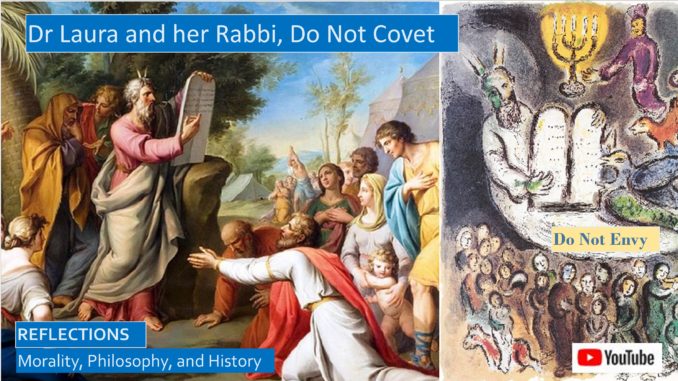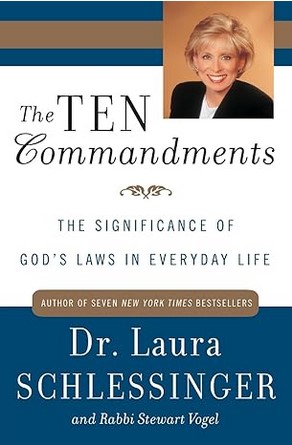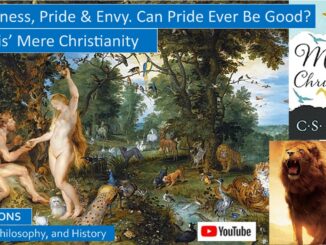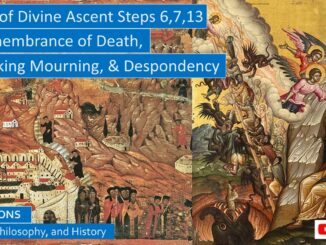
I want! I want! I WANT!
It may be okay to want, but to want way too much, too want in excess, that can be spiritually dangerous. Our Dr Laura and her Rabbi Stewart Vogel have a unique perspective, and Dr Laura and her viewers have interesting observations on envy, and each of the Ten Commandments from the years she has been hosting her show, which was on national radio but for the last few decades has been on Sirius XM and the internet.
If in your heart you keep shouting, I want! I want! I WANT!
Not only are you acting and living like a child, but when you focus excessively on getting more possessions and success, you risk becoming jealous of what your neighbor’s possessions and success, you risk becoming obsessed and possessed by jealousy and envy. Coveting and envy is a sin that is unique because it is a sin of our thoughts and mind, our “thoughts, desires, and feelings.”
Dr Laura notes that wanting, by itself, can be motivating, that ambition is needed for striving for accomplishments and a career, but as the Greeks warn us, nothing to excess, we should never “want something at someone else’s expense.” She quotes Dr Robert Kofahl, “we are exhorted to push evil thoughts from our minds by replacing them with good, uplifting thoughts.”
Dr Laura and her rabbi say, “When we do not set limits on ourselves,” “when we lose the sense that the ultimate good of acts or things resides in their service to godliness, the world becomes too small and limited to satisfy our infinite yearnings. That is a life of torment for the perpetually unsatisfied; and is a dangerous world for others in their way.”
Is desire the same as coveting? Dr Laura and her rabbi point out that the version of the Decalogue in Deuteronomy uses two Hebrew words for coveting, exhorting that “you shall not COVET your neighbor’s wife,” followed by “you shall not DESIRE your neighbor’s house.” Scholars differ on this question, but the verse in Micah 2:2 suggests that desire itself is a sin, “They shall covet fields and take them by violence.”
Other scriptures exhort us not to sin in our thoughts,
“You want something and you lack it; so you kill.” (James 4:2)
“Jealousy inflames the husband who will show no mercy when the day comes for revenge.” (Proverbs 6:34)
“The life of the body is a tranquil heart, but envy is a cancer in the bones.” (Proverbs 14:30)
Dr Laura shares some interesting stories, she remembers “when one caller was envious of her friend’s new, great job, I suggested she throw a congratulations party for her, or send her a note saying, ‘Congratulations!’” to ward off the temptation to envy.
Another caller recalls, “I think envy has gotten the best of me when I have forgotten my purpose. I am here to make a difference in the world, not to compete for glory.”
Another caller recalls, “Greed or envy only gets the best of me when I’m competing in a sport.” Perhaps Coach Lombardi’s saying is not that wise: “Winning isn’t everything, it is the only thing.”
We did a video on the winning University of Colorado Coach McCartney who retired at the height of his winning career to dedicate his life to a ministry he founded called Promise Keepers, a ministry that had limited success because he was trying to spread an unpopular message of racial reconciliation, a message that he thought important since he came to understand how difficult life was for the families of the many black high-school football players he recruited.
Another caller says that “someone who does not covet is a person at peace, a person content, a person happy with their present circumstances.” Her Rabbi Vogel quotes the rabbinic teaching, “Who is wealthy? The one who is content with his life.” Dr Laura corrects misconceptions of many of her callers: “Contentment with our blessings is not laziness. Contentment does not imply a lack of effort or ambition. Instead, contentment is appreciation and gratitude and not an inventory of what is missing or yet to get.” “You know you are on the right track when you can enjoy the success and happiness of others.” “You are on the wrong track when, instead of admiration and respect for the success of others, you instead suffer from resentment and an enraged sense of entitlement.”
Dr Laura also has a long discussion by a caller on how having both spouses work can be a subtle form of coveting, and that can be true when the family can live on the earnings of the husband alone if they cut back, at least until the kids get into school. But single mothers usually are compelled to go to work, and there are couples who make so little that they are both forced to work, and this is a private decision between them and Jesus.
One biblical story Dr Laura and the Catholic Catechism mentions is that of King Ahab, who envied the orchard of Naboth, who refused to sell it to him, preferring to keep it in his family. His evil wife Jezebel, worshipper of the pagan god Baal, the Canaanite daughter of the King of Tyre, upset that her husband Ahab was depressed, framed Naboth on false charges of blasphemy, executing him, and stealing his orchard. The gateway sin of envy led to slander, theft, and murder.
Dr Laura also recounts the biblical story of David and Bathsheba. One spring when his army was off to war under trusted general David lingered in Jerusalem, where from his palace he spied on Bathsheba bathing on her rooftop. What kings want, kings grab. This envy led to adultery, theft, and murder.
However, Dr Laura has this odd observation that “right coveting, that is, growing in spirit, wisdom, knowledge, and goodness, does not take from, nor diminish anyone else, but instead benefits each of us and the world.” This is better described by the Beatitude exhorted by Jesus, “Blessed are those who hunger and thirst after righteousness, for they shall be filled,” and the Catholic Catechism references a work by St Augustine and by St Gregory of Nyssa on the Beatitudes as they related to envy that describe this blessing. My criticism is not the observation itself, but rather that the concept of “right coveting” is spiritually hazardous, as it is too easily misunderstood, because this is the only place I have seen this usage of the word, coveting, saying that it can ever be virtuous.
WHAT IS SELFLESS SUCCESS?
This poem was sent by one of Dr Laura’s listeners from her church bulletin:
Success is speaking words of praise
In cheering other people’s ways,
In doing just the best you can
With every task and every plan.
Success is silence when your speech would hurt,
Politeness when your neighbor is curt,
Deafness when the scandal flows,
and sympathy with another’s woes.
Success is courage when disaster falls,
Patience when the hours are long,
Success is found in laughter and in song,
And in the silent time of prayer.
In all of life and nothing less,
We find the thing we call success.[1]
Dr Laura also quotes the beautiful Psalm 27 on heavenly treasure:
“One thing have I asked of the Lord,
that will I seek after;
that I may dwell in the house of the Lord
all the days of my life,
to behold the beauty of the Lord,
and to inquire in his temple.”[2]
[1] Dr Laura Schlessinger and Rabbi Stewart Vogel, “The Ten Commandments, The Significance of God’s Laws in Everyday Life (New York: HarperCollins, 1998), pp. 297-316.
[2] https://www.biblegateway.com/passage/?search=psalm+27%3A4&version=RSVCE





1 Trackback / Pingback